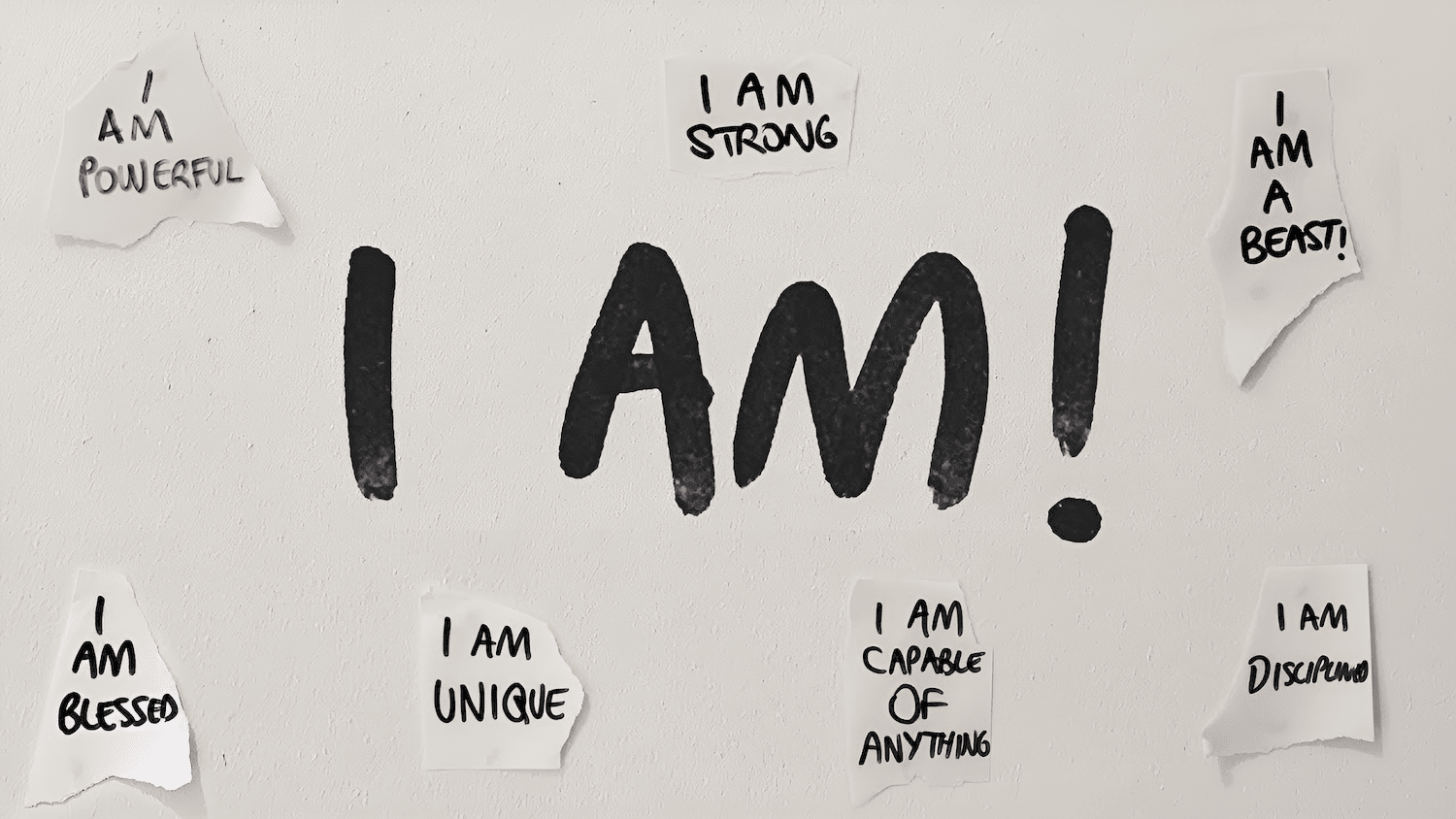Finding Strength in Self-Acceptance: Embracing the Truth That "I Am Enough"
In a world that often demands constant improvement, relentless achievement, and unending success, the simple yet powerful belief that "I am enough" can feel elusive. Society bombards us with messages that suggest we must strive to be more—more accomplished, more attractive, more productive. These external pressures can leave us feeling inadequate, stuck in a cycle of comparison and self-doubt. Yet the truth is, embracing the idea that "I am enough" is the key to unlocking inner peace, confidence, and genuine self-fulfillment. It is not about settling for mediocrity but rather about recognizing that your worth is not defined by your achievements or others' perceptions. Instead, it is found in accepting yourself as you are—flaws, strengths, and all.The journey to self-acceptance begins by confronting the inner critic that thrives on self-judgment and negativity. This voice often echoes past criticisms, societal expectations, or unrealistic standards we've imposed on ourselves. Learning to silence that critical voice requires compassion and patience. One effective strategy is practicing positive self-talk—intentionally replacing negative thoughts with affirmations that reinforce your inherent value. Reminding yourself that "I am worthy," "I am capable," or "I am deserving of love" can gradually shift your mindset and cultivate a healthier sense of self. By challenging these limiting beliefs, you create space to embrace your authentic self with kindness and understanding.
Embracing the belief that "I am enough" also means redefining success on your own terms. Instead of measuring yourself by external milestones or comparing your journey to others, focus on personal growth and meaningful achievements. Celebrate the small victories, whether it's learning a new skill, overcoming a challenge, or simply showing up for yourself during difficult times. By valuing progress over perfection, you release the pressure to meet unrealistic standards and discover greater contentment in the present moment. Self-acceptance is not about giving up on your goals; rather, it is about recognizing that you are whole and valuable throughout the process, not just when you reach a particular milestone.
Ultimately, the belief that "I am enough" empowers you to build stronger, more authentic connections with others. When you accept yourself fully, you approach relationships from a place of confidence rather than insecurity. This allows you to establish boundaries, express your needs honestly, and foster deeper connections based on mutual respect and understanding. By embracing your true self, you invite others to do the same, creating a ripple effect of compassion and authenticity in your community. Self-acceptance is not a destination but an ongoing journey—one that requires patience, practice, and unwavering kindness toward yourself. Yet with each step forward, you reclaim your inner strength and discover the profound truth that you have always been enough.

What Does It Mean?
Self-acceptance is the conscious decision to embrace yourself wholly—your strengths, weaknesses, and everything in between. It means acknowledging your imperfections without judgment and loving yourself in your current state.Accepting yourself doesn’t mean giving up on personal growth. Rather, it allows you to evolve from a place of love and compassion rather than self-criticism. When you recognize that you are inherently worthy, the need for constant validation diminishes, and you develop the strength to pursue your goals authentically.
The Importance of Embracing Your True Self
Embracing your true self is vital to mental, emotional, and even physical well-being. When you accept yourself:
- Your self-esteem improves: By affirming your worth, you no longer rely on external validation to feel confident.
- You foster healthier relationships: Authenticity attracts people who respect and value the real you.
- Your mental health thrives: Self-acceptance reduces anxiety, stress, and depressive tendencies by diminishing self-doubt.
- You develop resilience: Embracing your flaws helps you recover more effectively from failure or setbacks.
By recognizing your inherent value, you unlock a deeper sense of fulfillment and purpose.
Common Misconceptions About Self-Acceptance
Many people struggle with self-acceptance due to common myths, including- "Self-acceptance means settling." In reality, self-acceptance allows for growth without self-punishment.
- "If I accept myself, I'll stop improving." Acceptance encourages growth by helping you identify what to improve from a place of compassion rather than criticism.
- "Self-acceptance is selfish." Loving yourself empowers you to show up more fully for others.
These misconceptions create barriers that prevent people from embracing their inherent worth. Recognizing these myths allows you to break free from limiting beliefs.
The Impact of Society on Our Self-Perception
Society plays a major role in shaping how we view ourselves. Media, social norms, and cultural pressures often create unrealistic standards that fuel self-doubt. Social media platforms, in particular, can distort reality by showcasing idealized versions of people's lives, fostering feelings of inadequacy.
To combat these influences:
- Curate your media consumption: Follow accounts that promote authenticity and positivity.
- Challenge unrealistic standards: Remember that perfection is unattainable and that everyone faces struggles.
- Engage in self-reflection: Focus on your unique journey rather than comparing yourself to others.
By consciously rejecting negative influences, you can redefine your self-worth on your own terms.
Steps to Cultivating Self-Love
Building self-love requires intentional practice and commitment. Here are actionable steps to guide your journey:
1. Practice mindfulness: Spend time observing your thoughts without judgment to build self-awareness.
2. Identify your strengths: Celebrate your achievements and unique qualities.
3. Forgive yourself: Embrace past mistakes as learning opportunities rather than sources of shame.
4. Set healthy boundaries: Protect your mental and emotional space by establishing clear limits.
5. Celebrate progress: Recognize and appreciate your personal growth, no matter how small.
By nurturing self-love, you create a strong foundation for embracing who you are.
Positive Affirmations in Self-Acceptance
Positive affirmations are powerful tools that can shift your mindset and reinforce self-acceptance. Repeating affirmations regularly helps reprogram negative beliefs. Some powerful affirmations include:
-
✔ "I am enough just as I am."
-
✔ "I embrace my imperfections as part of what makes me unique."
-
✔ "I am worthy of love and respect."
-
✔ "I forgive myself and release self-judgment."
-
✔ "I celebrate my growth and progress every day."
Consistency is key. Integrating affirmations into your daily routine—whether spoken aloud, written down, or reflected upon—can cultivate lasting change in your mindset.
Overcoming Negative Self-Talk and Limiting Beliefs
Negative self-talk is a common challenge in the journey to self-acceptance. To break free from harmful thought patterns:
- Identify triggers: Recognize situations or experiences that prompt negative thoughts.
- Challenge distorted beliefs: Ask yourself, "Is this thought true?" and seek evidence that contradicts it.
- Reframe negative thoughts: Replace self-criticism with constructive alternatives. For example, instead of saying "I'm a failure," say "I faced a challenge and learned from it."
- Seek support: Talking to a therapist or coach can provide strategies to overcome deeply rooted limiting beliefs.
With persistence, you can silence your inner critic and nurture a healthier self-image.
Building a Supportive Environment for Self-Love
Creating a positive environment plays a crucial role in developing and maintaining self-acceptance. Consider these tips:
- Surround yourself with positive influences: Spend time with people who uplift and support you.
- Establish healthy boundaries: Protect yourself from toxic relationships or environments.
- Engage in self-care practices: Prioritize activities that nourish your body, mind, and soul.
- Create spaces that inspire positivity: Your living and work environments should reflect peace, comfort, and inspiration.
A nurturing environment strengthens your ability to sustain self-love and embrace your authentic self.
I Am
Creating the life I love
Say your "I Am's" every day and watch your reality transform almost overnight.
Say Your I Am's
Real-Life Stories of Transformation Through Self-Acceptance
Hearing real-life experiences can inspire hope and encourage personal growth. These inspiring stories illustrate the profound impact self-acceptance can have on various aspects of life:
- Maya's Journey to Body Positivity: After years of battling body image insecurities, Maya struggled to see her beauty due to constant exposure to media that promoted unrealistic standards. She found herself trapped in cycles of restrictive dieting and self-criticism. Determined to change, Maya began following body-positive influencers, practicing mindfulness, and using positive affirmations like, "I am beautiful just as I am." Over time, she embraced her natural appearance, celebrated her body's uniqueness, and reclaimed her confidence. Today, Maya is an advocate for body positivity, encouraging others to love themselves unapologetically.
- James' Battle with Perfectionism: Despite achieving significant career milestones, James constantly felt inadequate. His pursuit of perfection led to chronic stress and burnout. Recognizing the toll this mindset was taking on his well-being, James sought therapy. Through guided counseling, he identified the roots of his perfectionism and worked to develop self-compassion. By celebrating small wins and embracing his imperfections, James learned to appreciate his achievements without self-criticism. Today, he manages his work-life balance more effectively and prioritizes his mental well-being.
- Elena's Breakthrough in Relationships: For years, Elena sought validation in her relationships, constantly molding herself to fit others' expectations. This left her feeling emotionally drained and disconnected from her true self. After a difficult breakup, Elena committed to personal growth. She focused on defining her values, setting healthy boundaries, and learning to say "no." By embracing her authentic self, Elena attracted people who valued her for who she truly was. Today, she enjoys healthier, deeper connections with friends, family, and romantic partners.
- Carlos' Triumph Over Social Anxiety: Carlos spent years feeling invisible in social settings, often overwhelmed by anxiety and self-doubt. Convinced he had little to offer, he avoided social events and struggled to connect with others. Determined to break free from isolation, Carlos joined a local support group. By sharing his experiences in a safe space and practicing self-affirmations, he gradually built confidence. Over time, he developed friendships, improved his communication skills, and started participating in social activities without fear. Today, Carlos leads social workshops to help others overcome anxiety.
- Amira's Path to Embracing Her Career Potential: Amira faced imposter syndrome despite her skills and achievements. She doubted her ability to succeed in leadership roles and often downplayed her contributions. After working with a mentor, Amira realized her limiting beliefs were holding her back. Through journaling, goal-setting, and self-affirmations, she gained the courage to take on more challenging projects. By embracing her value and trusting her abilities, Amira secured a promotion and now mentors other professionals on building self-confidence.
- David's Journey to Finding Inner Peace: Struggling with past mistakes, David battled feelings of shame and regret. These negative emotions weighed heavily on his mental health, preventing him from moving forward. With the support of a trusted counselor, David began practicing forgiveness and self-compassion. He started volunteering at a local shelter, turning his past struggles into a source of empathy and guidance for others. By accepting his imperfections and learning from his experiences, David discovered inner peace and a renewed sense of purpose.
These stories highlight the transformative power of self-acceptance and serve as reminders that lasting change is possible for anyone committed to self-love. Whether the challenge lies in body image, career struggles, or emotional healing, self-acceptance paves the way for personal empowerment and growth.
Embrace Your Worth: You Are Enough
Accepting that "I am enough" is a powerful declaration that reshapes your relationship with yourself and the world around you. By embracing your true self, challenging negative beliefs, and fostering a supportive environment, you can build lasting confidence and find peace within.
Remember, your journey to self-acceptance is unique—be patient and compassionate with yourself. The path to self-love may have challenges, but by choosing to believe in your worth, you create a life grounded in authenticity, resilience, and joy.

